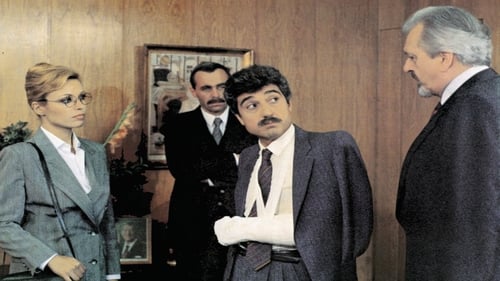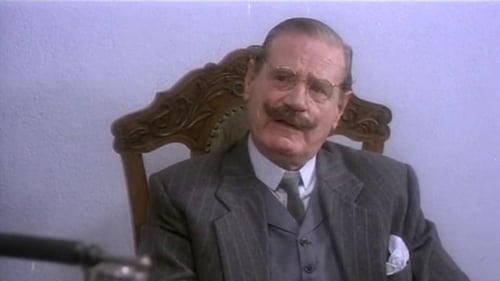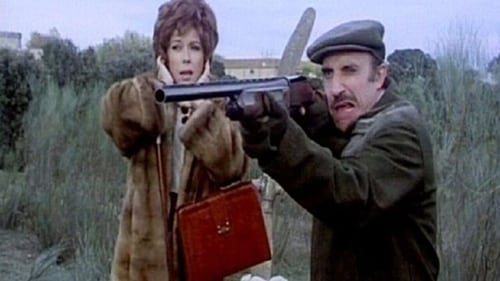
This 1985 Spanish film reveals one of the many terrible aspects of 16th century Spain, still plagued by the radical Christian Inquisition, one of a plethora of difficulties Spaniards faced at the time. Spanish super star Carmen Maura plays a nun who agrees to a selfless scam, a fake stigmata, only to avoid separation from her lover, another nun. It's a serious and passionate work, highlighting the theme of outspoken women-against-repression, seen in other good gay and lesbian films. This is not a lesbian "Nun sense" or another "Dark Habits" (by Almodovar, which also starred Carmen Maura, and also set in a Spanish convent, with some lesbian nuns). Perhaps, best of all, 'Extramuros' is realistic and frank. It isn't shy about its characters' sexuality. Their sexuality, and the film as a whole are genuine.

Tía de Juan

The movie tells the story of four beautifull and young girls: María, Pilar, Patricia and Virginia. They all work at the bingo and while they sell bingo cars they fill the room with smiles, happyness and excitement. But not all in their lifes is a game. They have all type of problems and dificult situations at work: the harassment of men, the quirks of the players ... but by the end love will win, as well as the joy of life and optimism.

A story of a family whose father tries by all means to maintain the strictest ethics and morality ... or at least appear so. His beautiful young daughter tries to emancipate hereself and looks for a job, but the chance is that the first thing that comes out is underwear seller. She starts to work and problems start for all.

María

Dolores

Amiga de Consuelo #1
Sequel to "The Great Family" and "Family and one more". A widower and the godfather of his 16 children, aged two, wistfully contemplate the past. The father was left alone in the family home, but loneliness overwhelms him so he decides to spend some time at home for each of their children, most of whom are married. But the experience ends up being disastrous.

Bruja Güestia
Adaptation of the comics by Alfonso Iglesias

Dramatic portrait of men and women discouraged in the midst of the Spanish Civil War, after the odyssey of a group of Republican soldiers trying to reach the east coast to go into exile. Agustín must bear that his libertine father lives with the ironer Remedios, although she does not love him. She escapes and he goes to war; when they finally meet again, anxious amid bursts, it will be impossible to consummate their desires repressed for so long.

Lluis de Serracant leads a double life. By day he's a young lawyer, scion of a Catalan bourgeois family. At night he's a transvestite performer known to his fans as "Flower of Autumn".

A catalan manufacturer of intercoms travels to Madrid, accompanied by his mistress, to attend a hunt that he has organized. Its main purpose is to mix with people of high society to improve their business. All seems well until the owner of the farm shows full authority over James, who is the real organizer of the meeting. The celebration is diverse characters who live next to absurd situations.

Luciano has been working in an important company for fifteen years without be rewarded for his efforts, his fidelity and submission. On the recommendation of a cousin, he acts as front man for the shameful business of his managers. They get it so far as to force him to marry the former mistress of one of the directors. Finally, because of a fire in the chalet where he lives and where they cook the dirty business of which he is not responsible for, Luciano ends up in jail for covering up and taking on some responsibilities that are not his, fulfilling his role of straw man until the end.

Dueña Pensión
Toni is a seventeen year old young man who comes to Madrid from a little village in search of work. A friend from the same village of Toni puts him in touch with Charo, "La Corea", a mature woman dedicated to facilitating contacts and boys to American men at the military base of Torrejón.

Dueña pensión

Madre
Pamplona (Spain), 1975: Dr. Navarro, a famous doctor in the city, feels strongly attracted to Juana, his nurse, who is also in love with the doctor. Navarro, however, moved by his strong religious convictions (in fact, he is a numerary member of Opus Dei) remains faithful to his wife and tries by all means to prevent that their relations with Juana break through professional boundaries. For the purpose of that, he orders the nurse will sent to another hospital. This will push Juana to take the initiative and provoke the doctor during San Fermines.

Hermana de Álvarez
Madrid, in the forties. In the post-war period, Paca, a chorus girl who aspires to enter the Celia Gámez Company, returns to Madrid after a provincial tour. In the same train travels Luis, undocumented young person to whom Paca allows him to spend the night in the room where she lives with her sick father. Paca's relationship with Julio, a mogul without remorse, offers her financial support, but Luis gives her the tenderness and love she does not have with Julio.

In Madrid, during the postwar, Miguel, decide to live supported by women. He has two workers who doesn´t make much headway, for that reason, advised by one of his friends, he decides to go to other town to find a young girl, naive but ambitious in order to take her to the city and make her work.

Sra. Petrescu
Count Dracula's pregnant granddaughter arrives at his castle, along with her husband, who is not a vampire. While she prepares to give birth to a new member of the Dracula line, her husband secretly launches into a series of affairs with the Count's resident "brides."

La madre di Elisa
A young woman teaches commercial writing and makes her students practice by writing letters addressed to an imaginary recipient from Vienna. One day, the love letter the woman writes to this non-existent man is accidentally sent by one of her students –and falls into the hands of a real person.













